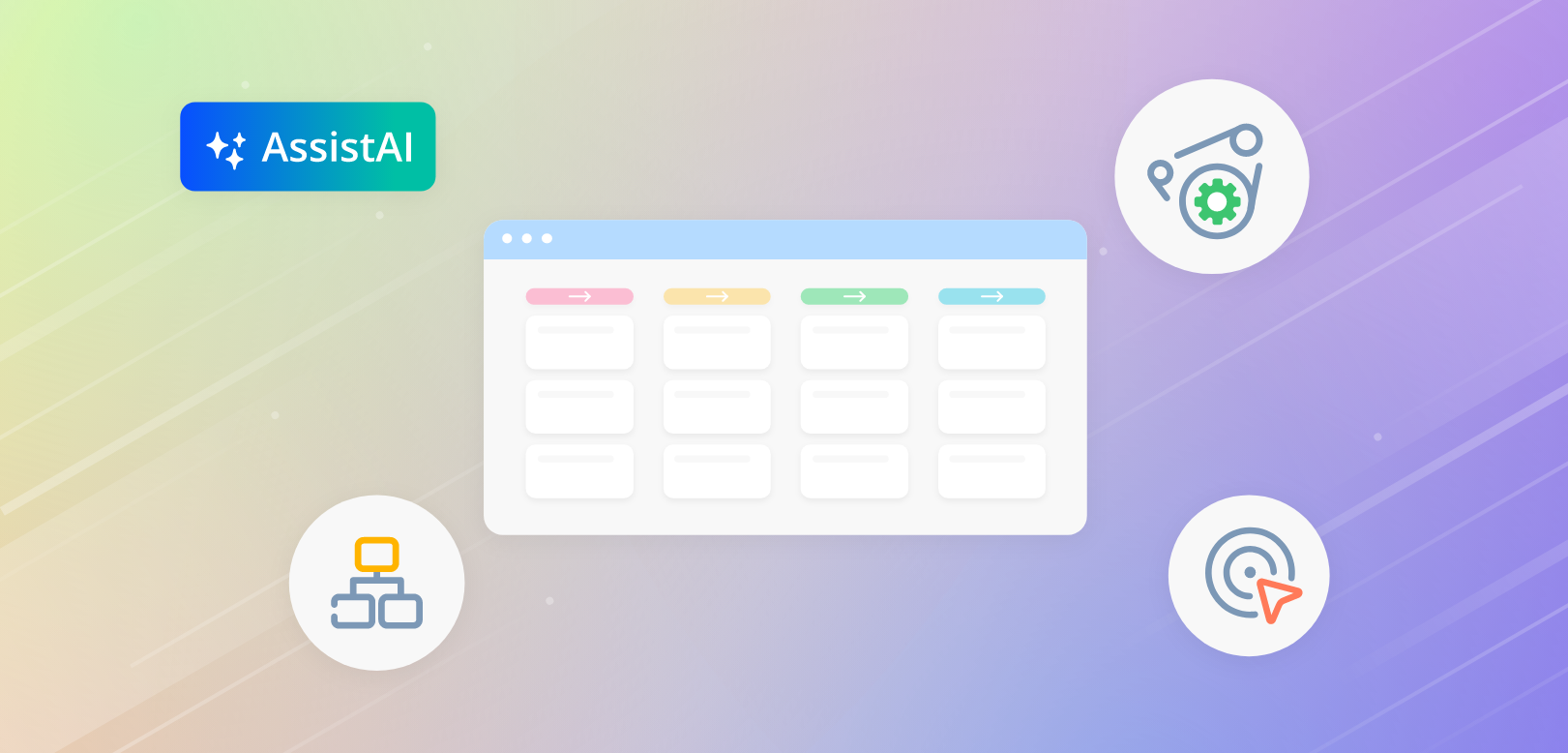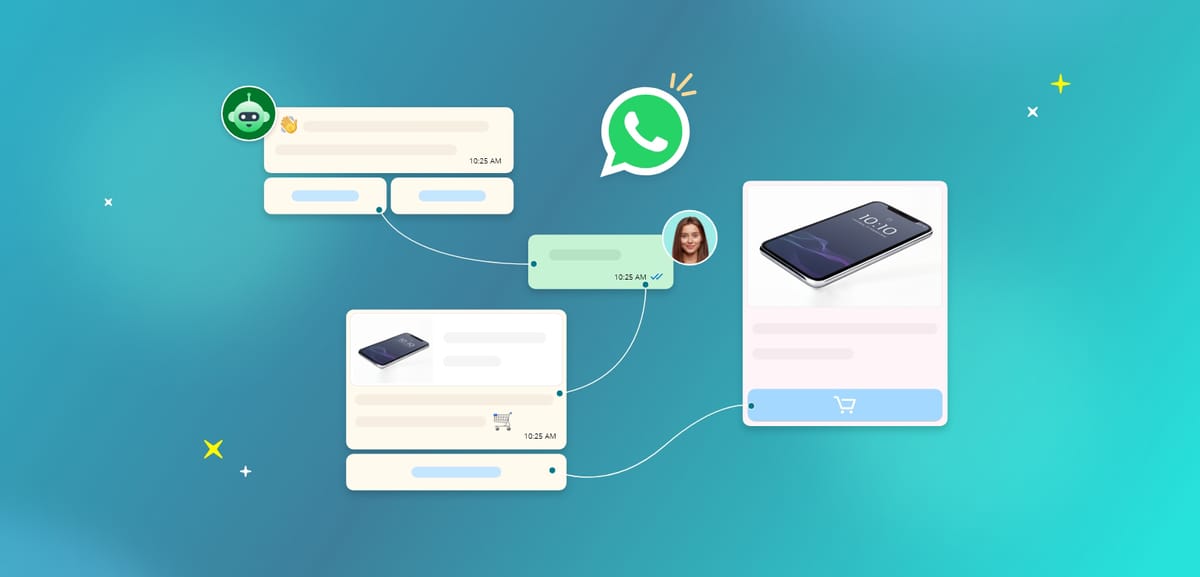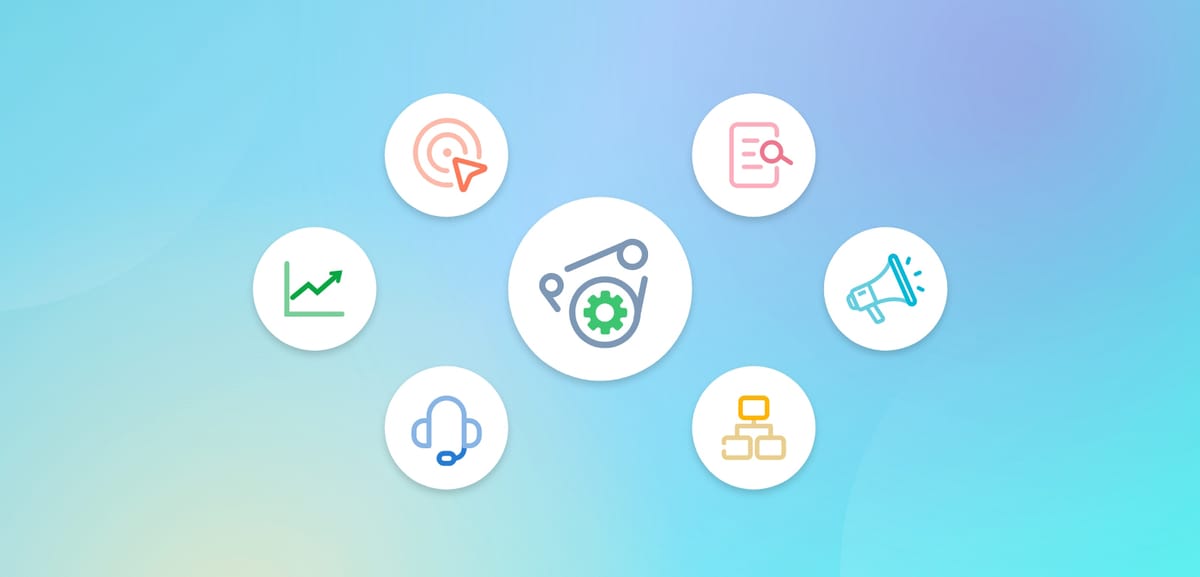CRM 2.0: How AI and CRM automation is redefining customer relationships
Discover how AI is revolutionising CRM systems, enabling businesses to enhance customer engagement, boost efficiency, and drive growth. Explore AI-powered features like predictive analytics, and automation to see how they can transform your customer relationship management.

Do you use a CRM if our guess is right? Customer relationship management (CRM) software has completely transformed how your businesses engage with consumers, which allows you to improve customer happiness, increase efficiency, and spur growth.
CRM software has even greater potential in the future, given the quick progress being made in artificial intelligence (AI). With the help of AI, businesses can now better comprehend, interact with, and service their customers thanks to new insights and capabilities. A good example of AI transforming business operations is Luppa AI, an all-in-one AI marketing platform that streamlines content creation, scheduling, and automation. By leveraging AI to generate personalized, on-brand content across multiple channels, Luppa AI helps businesses create impactful marketing strategies that can easily integrate with CRM systems to enhance customer engagement.
We'll look at the revolutionary capabilities that CRM AI offers as well as the fascinating potential of AI in CRM. We'll explore how AI is changing CRM in the future, from natural language processing to predictive analytics, and talk about the use cases that will guide you in making a real impact.
What is CRM?
Customer Relationship Management (CRM) systems are software applications intended to assist businesses in managing their interactions with both existing and prospective customers. These systems typically centralise customer data, including contact information, communication history, buy history, and preferences, allowing businesses to gain insights into their customers' behaviors and needs. CRM systems help various aspects of customer engagement, such as sales automation, marketing automation, and customer support. They enable businesses to track leads, manage pipelines, send targeted marketing campaigns, and provide personalised customer service. By organising and analysing customer data, CRM systems help businesses build stronger relationships with customers, improve customer satisfaction, and ultimately drive sales and revenue growth. Additionally, CRM systems often offer features such as reporting and analytics, integrations with other business tools, and customisation options to suit the specific needs of different industries and organisations. Customer Relationship Management (CRM) systems come in various types, each tailored to different business needs and requirements. These are the various types of CRM systems:
- Operational CRM: Operational CRM automation is centered on optimizing and automating a range of customer-facing activities, including sales, marketing, and service processes. It typically includes functionalities such as lead management, contact management, opportunity tracking, and customer support ticketing systems.
- Analytical CRM: Customer data is analyzed in analytical CRM to gain insights into customer behavior, preferences, and trends. It involves data mining, predictive analytics, and segmentation techniques to identify valuable customer segments, expect future needs, and personalise marketing and sales efforts accordingly.
- Collaborative CRM: Collaborative CRM emphasises collaboration and communication among different organisational departments to ensure a seamless and consistent customer experience. It facilitates the sharing of customer information across departments, such as sales, marketing, and customer service, to coordinate efforts and provide unified support to customers.
- Strategic CRM: Strategic CRM focuses on long-term customer relationship building and strategic planning. It involves aligning CRM initiatives with overarching business goals and objectives, developing customer loyalty programs, and implementing strategies to enhance customer lifetime value.

Role of AI in Customer Relationship Management (CRM) & customer experience
Nowadays, businesses are flooded with technology enhancements and look forward to focusing on two main goals: efficiency and enhanced customer experience. They are already using different CRMs to organise, automate and sync all their cross-functional activities.
But the question is always there: what does AI do in this if CRM already handles everything? A simple, straightforward answer to this would be AI in the picture, which leads your way to not just multiply your ROIs but lets you scale quickly. AI in CRM automates routine tasks, such as data entry, lead scoring, idea generation, real-time customer issue solving, etc., freeing time for employees to focus on high-value activities. Businesses use AI CRM to absorb vast amounts of customer and business data, including historical purchases, preferences, time of delivery and much more. This gives them the power to predict even before the event occurs. Let’s dive to see what it has for you in the future!
Driving value in the future of CRMs
AI and automation will significantly shape the future of Customer Experience (CX) by being integrated into Customer Relationship Management (CRM) systems. Here's a vision of what that future might hold:
Personalised interactions: AI algorithms will analyse vast amounts of customer data to generate insights into individual preferences, behaviors, and needs. This data will enable companies to deliver highly personalised interactions, whether through targeted marketing messages, tailored product recommendations, or customised support.
WhatsApp CRM: WhatsApp CRM focuses on integrating the WhatsApp messaging platform into CRM systems to ease customer communication, support, and engagement. It enables businesses to interact with customers through WhatsApp, manage conversations, automate responses, and provide personalised support, leveraging the popularity and convenience of the messaging app.
One key aspect of WhatsApp CRM is its ease of real-time communication between businesses and customers. WhatsApp is one of the most widely used messaging apps globally, so businesses can connect with customers. WhatsApp CRM enables businesses to respond promptly to customer inquiries, provide personalised support, and engage in two-way conversations to address customer needs effectively.
Moreover, WhatsApp CRM systems often incorporate automation and chatbot capabilities to streamline communication processes. Chatbots can handle routine inquiries, provide instant responses, and even start transactions, freeing up human agents to focus on more complex tasks. By automating repetitive tasks and providing instant support, WhatsApp CRM enhances efficiency, response times, and customer experience. Additionally, WhatsApp CRM platforms may offer multimedia support, analytics, and integration with other CRM systems, enabling businesses to deliver rich and seamless customer experiences across channels.

Predictive analytics: CRM AI systems will leverage predictive analytics to expect customer needs and behavior. By analysing historical data and current trends, these systems will identify patterns and predict future actions, allowing businesses to address customer issues, offer relevant solutions, and predict potential churn.
Chatbots and virtual assistants: AI-driven chatbots and virtual assistants will become ubiquitous in CRM systems, providing instant support and information to customers around the clock. These bots will handle routine inquiries, assist with basic transactions, and escalate complex issues to human agents when necessary, enhancing efficiency and reducing response times.
Automation of routine tasks: Automation will streamline various routine tasks within CRM systems, such as data entry, lead scoring, and scheduling. By automating these processes, businesses can free up valuable time for their employees to focus on high-value activities, such as building customer relationships and devising strategic initiatives.
Omni-channel integration: AI-powered CRM systems will integrate across many channels, including email, social media, messaging apps, and voice assistants. This omni-channel integration will ensure a consistent and cohesive customer experience across all touchpoints, regardless of how customers choose to interact with the brand.
Sentiment analysis and emotional intelligence: AI algorithms will be capable of analysing customer sentiment and emotional cues in real-time, enabling businesses to gauge customer satisfaction levels and detect potential issues before they escalate. By understanding and responding to customer emotions, companies can foster deeper connections and build stronger relationships with their clientele.
Continuous learning and improvement: AI-powered CRM systems will learn from interactions and feedback, refining their algorithms and improving their capabilities over time. This iterative learning process will enable businesses to adapt to changing customer preferences and market dynamics, ensuring that they remain competitive in the long run.

Key benefits and considerations for integrating AI into CRM
Integrating AI and CRM automation offers a range of benefits, but it's not without its considerations. Let's see the breakdown of both sides of the coin:
Benefits:
Improved decision-making: Predictive analytics can help forecast sales, identify churn risk, and optimise resource allocation.
Customer experience: Chatbots and virtual assistants can provide 24/7 customer support, answer basic questions, and route complex issues to human reps. AI can also personalise interactions for a more satisfying customer experience.
Data analysis: AI can analyse vast amounts of customer data to identify patterns, predict future behavior, and provide actionable insights for personalised marketing and sales strategies.
Efficiency: AI automates repetitive tasks, freeing up human reps for strategic work.
Key considerations:
Job displacement: While AI creates new opportunities, some routine tasks may be automated, impacting some CRM user roles.
Transparency and ethics: Be transparent with users about how AI is used in your CRM and ensure ethical data collection and usage practices that follow privacy regulations.
Cost: Implementing and maintaining AI-powered CRM automation systems can be expensive. Consider your budget and long-term ROI before integrating.
Data quality and security: AI relies on clean, accurate data. You'll need to ensure your CRM data is up-to-date and put in place robust data security measures.
Conclusion
Does your CRM system need artificial intelligence, or is it just a feature that won't provide value? Like most things, your organisation's specific situations and needs will determine the answer. AI in CRM will be pretty appealing to organisations currently making extensive use of their CRM system. Yet, businesses having trouble adopting CRM or other fundamentals may find AI solutions unnecessary. The greater the information your company gathers about potential clients and consumers, the more value an analytical tool with real-time recommendations may offer.





